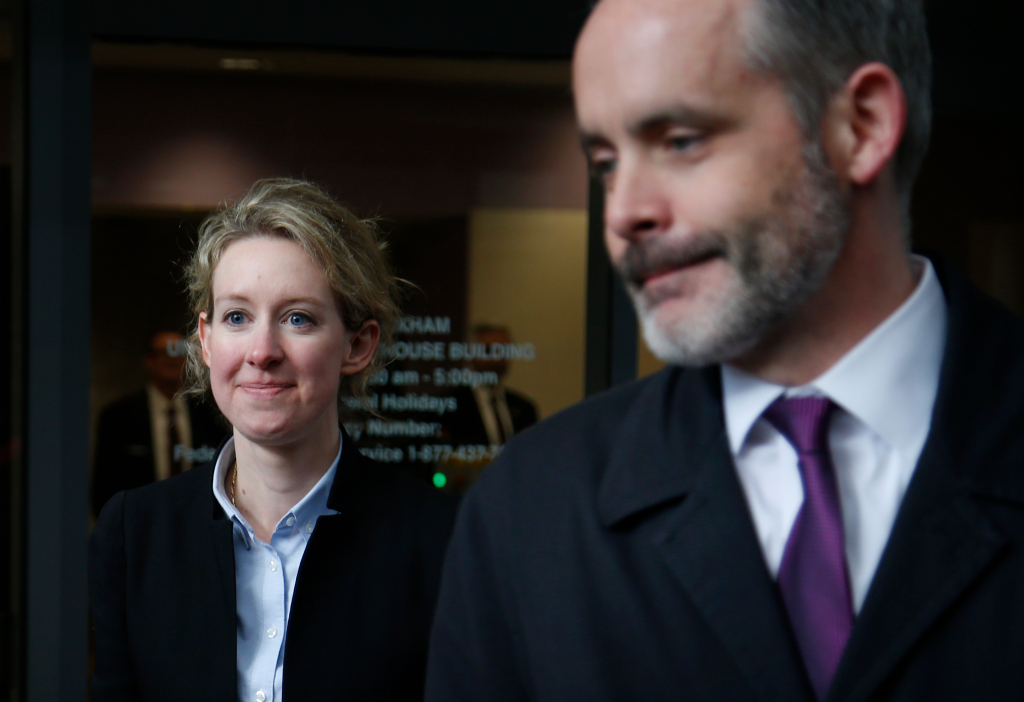Theranos founder Elizabeth Holmes’ claim that a new felony fraud charge against her is “patently unconstitutional” should be dismissed by the court, federal prosecutors said this week in a legal filing as her case moves toward trial.
Holmes, a Stanford University dropout who founded the blood-testing company in 2003, was slapped with a twelfth criminal fraud charge May 8, with the prosecution saying in a court filing that it concerned a patient’s test results.
The federal government alleges that despite claims by Holmes and her co-accused, former Theranos president Sunny Balwani, that the Palo Alto company’s machines could conduct a wide range of tests using a few drops of blood from a finger-prick, the two knew there were accuracy and reliability problems with their “analyzer” and that it could only conduct a limited number of tests. The two misled investors about Theranos’s financial health, and misrepresented business relationships with Walgreens and the U.S. Department of Defense, prosecutors claim.
Last week, Holmes’ legal team fired back at the new charge, saying it was unconstitutional because it was added not through a grand jury indictment but instead via a document called an “information,” which is a formal accusation by a government lawyer.
On Tuesday, the government’s lawyers asked the judge overseeing the case in U.S. District Court in San Jose to reject the argument made by Holmes’ team. Because grand jury proceedings in the federal court system’s Northern District of California are suspended until at least June 1, prosecution of the alleged crime that the new charge covers could be affected by a five-year statute of limitations, prosecutors argued in their court filing. Statutes of limitations set time limits for charges to be laid after an alleged crime. The new charge against Holmes relates to an alleged offense in May 2015.
The prosecution said the claim by Holmes’ lawyers that the process used for the twelfth charge was unconstitutional was “too much.” Charges are initiated all the time through “preliminary proceedings” such as an information, the government said. “They are not ‘patently unconstitutional’ merely because a defendant has indicated she will not waive her right to be prosecuted by indictment,” the government said.
Holmes’ trial, initially set for this summer, was delayed by the coronavirus pandemic until fall, with jury selection scheduled to start Oct. 27. However, Judge Edward Davila has questioned whether the start date will stand, and has set a status hearing for July 20 to consider the matter.











